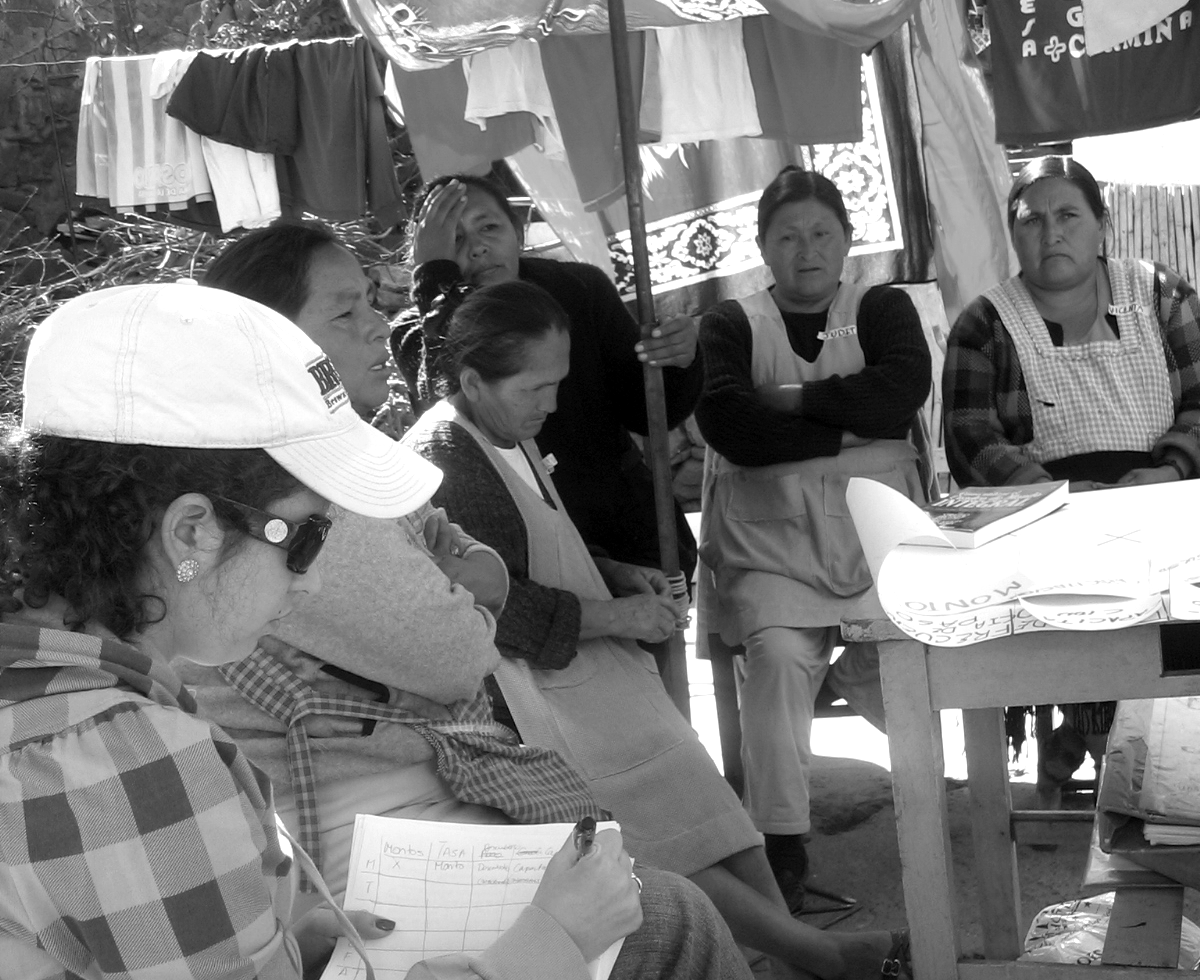
Gender Roles in Rural Entrepreneurship: A Bolivian Experience
Presenter: Alejandra Garcia, master’s student, UO Department of Planning, Public Policy and Management; M.A. Gender and Women Studies, Armstrong Atlantic State University.
The focus of my research is to bring to light the efforts and struggles of indigenous Bolivian women in rural areas. I provide testimony of some of the inequalities along gender lines in Bolivia. In particular, I focus on women’s struggle to become more independent by being entrepreneurs while still being able to be good wives and mothers. The resulting balancing act proves difficult when faced with wage disparity, discrimination, and lack of participation in business opportunities. Nevertheless, women find their calling when they begin a business and are able to generate their own income. Consequently, their self-esteem drastically improves, and they feel greater equality to their male counterparts.
I made multiple presentations to both high school students as well as the Osher Lifelong Learning Institute. Since the audiences were of different demographics, I altered my presentation style to fit each individual audience. The adults received more in-depth information about Bolivia and microfinance, while the students received more information concerning the testimonials and economy.
The students were very interested in understanding the solidarity economy—community based organizations that come together to create greater bargaining power for products. On the other hand, the adults wanted to learn more about microfinance and names of nonprofit organizations that were doing poverty reduction work. Many adults had been donors to microfinance organizations. Both audiences were strongly engaged with the topic. After the adult presentation, some audience members indicated that they had traveled to Bolivia, and one person had been a Peace Corps volunteer. The high school students were intrigued with development projects. It became clear that this was a good starting point to prepare them for their next lesson on development and the United Nations.
The presentations helped me to improve my oral skills enormously. At the same time, it was great to see how many people enjoyed the topic. I was impressed with the questions that I received—particularly from the students. One asked: “Why don’t women just rise up and say something?” The presentations provided me the opportunity to teach others about my country and its heritage.
Water Rights Are Women’s Rights
Presenter: Megan Burke, master’s student, UO Department of Philosophy; M.A., Women’s Studies, San Diego State University
As a Road Scholar I gained valuable pedagogical experience presenting my research about the relation of water and the consumption of bottled water to women’s freedom and health to high school students at South Eugene High School. My lecture addressed the use and production of bottled water and how it impacts women and girls around the globe in different, and often more direct, ways than men and boys.
This experience provided me with the opportunity to develop my presentation into a lecture for a class I teach on campus in the Department of Women’s and Gender Studies. And, based on the questions that were raised by my audience during my Road Scholars presentation, I plan to pursue this topic in new areas of research, namely, thinking through the issue of water rights as women’s rights within the framework of the U.N. Millennium Development Goals.
However, the most significant part of going on the road was the ability to talk about gender and women’s issues in spaces that typically do not have the resources to do so. I learned that the public is hungry to learn about gender, to understand the issues women around the world are facing, and to have a place to discuss them. The Road Scholars program thus gave me a way to bridge the gap between university walls and the community.
Roller Derby: Identity and Cultural Studies
Presenter: Rebecca Toews, M.S. student, UO School of Journalism and Communications
In academic research it seems that sometimes the audience can be forgotten. We can so easily get caught up in talking about our participants, interviewees, or informants that we lose touch with why we were curious about a topic in the first place.
My own studies about roller derby, feminism, and representation in alternative sports began as a simple observation of a unique subculture but evolved into something much bigger. I found, however, that along the way I had become so caught up in the literature I had almost lost the ability to explain to people the central focus of my studies!
The Road Scholars program serves as a unique bridge linking the towers of academia to the people who our research can affect. I know the program is meant to offer the community a chance to learn about new research, but it is equally valuable to those who participate.
Audience members provided a lot of positive feedback about my presentation. They said they came away knowing more about the topic, and I am, of course, very pleased with this. What I am more excited about, however, are the conversations my topic sparked among audience members. High school audiences grappled with complicated issues of sexualization and empowerment—the dialogue was lively, honest and fascinating to me as a facilitator. The seniors in the Osher Lifelong Learning Institute were inquisitive about many parts of the presentation as well.
The program keeps our research honest. I was faced with several “experts” in different fields in my audiences. For instance, some of the OSHER seniors in my audience were active during “the second wave” of feminism, some were audience members of roller derby bouts in its early years. Speaking to the women and men who were there is an invaluable aspect of this program; I gained new insight into my topic and was able to give back some of that knowledge to others.

